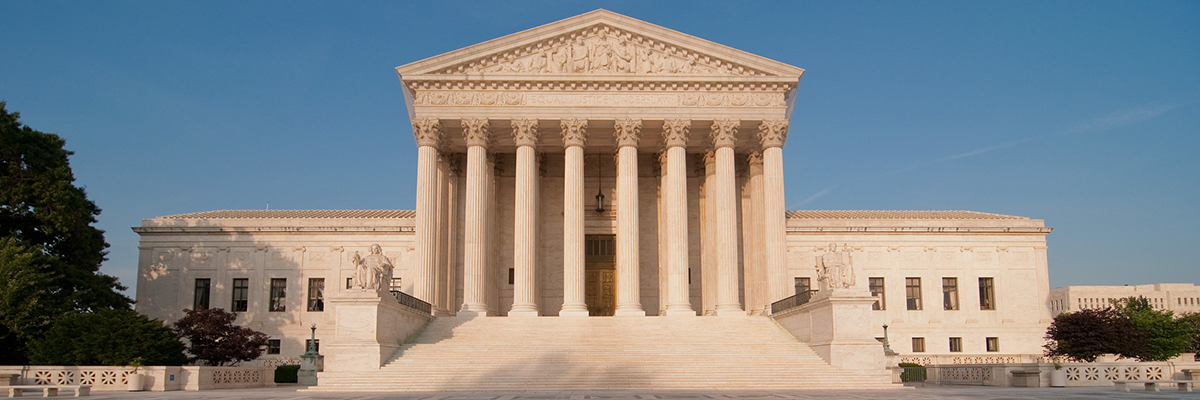The Washington Supreme Court’s battle over birthdays
On Thursday, the Washington Supreme Court released a ruling declaring that state employees’ birthdates—connected to their names—are subject to the Washington Public Records Act (PRA). The court was split 5-4 with the majority ruling that there was nothing in the PRA or the state Constitution that excluded birthdates from release. The dissenting opinions argued that releasing state employees’ birthdates connected to their names would make them more vulnerable to cyberattacks.
This might seem like a straightforward win for public records access, but the reality is a bit messier. The ruling came from a years-long legal battle between the Freedom Foundation, a conservative organization, and union groups, including the Washington Public Employees Association/UFCW Local 365 and Professional & Technical Employees Local 17, or “PROTEC17.” The Freedom Foundation is known for using public records requests to get personal information about union members, which it uses to contact them and tell them they aren’t required to pay union fees. In 2016, unions filed motions to block the Freedom Foundation from getting personal information like birthdates.
Read more from Joseph O’Sullivan at the Seattle Times. Read the Supreme Court Decision here:
U.S. Senators file FOIA request to Attorney General’s Office
If you thought Congress would get through impeachment proceedings without getting FOIA involved, you thought wrong. This week, Sens. Kamala Harris, Sheldon Whitehouse, and Richard Blumenthal filed a widely publicized FOIA request directly to Attorney General William Barr.
Harris, who is currently running for the Democratic nomination for President, announced the request on Twitter, saying:
It’s been almost 6 months since I asked Barr this question: did the White House ever ask him to investigate anyone? Still no answer.
— Kamala Harris (@SenKamalaHarris) October 23, 2019
That’s why today I filed a FOIA request demanding Barr hand over documents related to political interference from the White House—and Giuliani. pic.twitter.com/kKJpsAmFuR
Rashaan Ayesh in Axios connected the request to the Harris campaign, pointing out that Harris knows she gained popularity from her strong questioning of Trump administration officials. A FOIA request offers a way to appear tough on Trump without sacrificing too much time on the campaign trail.
Jordain Carney in the Hill wrote more about the senators’ motivations: “The three senators, who are all members of the Senate Judiciary Committee, said they were submitting their request for documents under the public records law because of the ‘administration’s refusal to cooperate with multiple congressional requests.’”
Read more at Axios and The Hill, and read the Senators’ FOIA request here:
FOIA Awards Nominations
Do you know someone who deserves a reward for all their hard work with public records? Nominate them for an award!
Two awards relevant to MuckRock users are now accepting nominations: the First Amendment Coalition’s 2019 Free Speech & Open Government Award and the New England First Amendment Coalition’s 2020 Michael Donoghue Freedom of Information Award.
The FAC’s Free Speech & Open Government Award is given “for performance of exemplary work in the arena of open government.” Qualifications include “outstanding accomplishment, service or other contributions to ‘the people’s right to know’ about government.” The Winner could be a “journalist, blogger, lawyer, news organization (print or digital), software developer or community activist.” The award comes with a $1,000 prize and will be presented in San Francisco at the Annual Winter Meeting of the California Press Foundation on Thursday, Dec. 5.
To nominate someone for this award, follow the instructions here.
The NEFAC’s Michael Donoghue Freedom of Information Award is given to “a New England journalist or team of journalists for a body of work from the previous calendar year that protects or advances the public’s right to know under federal or state law. Preference is given to those who overcome significant official resistance.” The award will be presented at NEFAC’s 10th annual New England First Amendment Awards luncheon on February 7 in Boston.
To nominate someone for this award, follow the instructions here.
In Other News
There were a lot of FOIA stories this week, and here at MuckRock we value every one of them. Here’s a quick rundown of some other stories that might have flown under the radar:
Brigham Young University, a private religious university in Utah, filed a lawsuit to stop the Salt Lake Tribune from obtaining emails from the school’s police department, which the Utah state legislature recently made subject to Utah’s public records law.
“The lawsuit is the latest in a three-year battle between the university and The Salt Lake Tribune over allegations school officials disciplined students who reported sexual assaults if they were found to be in violation of the university’s Honor Code.”
Read more from Jon Parton on Courthouse News Service.
Nicole Ogrysko reported on Federal News Network that this year US Citizenship and Immigration Services (CIS) had succeeded in reducing its FOIA backlog by 64%. CIS attributed this success to its new FOIA tracking and processing system, called the “Freedom of Information Act Record System (FIRST).” This was accomplished despite CIS receiving more than 200,000 FOIA requests in 2019.
Read more on Federal News Network.
Bay City News Service reported that San Francisco’s Bay Area Rapid Transit (BART) had added a new NextRequest portal for public records requests. “BART did not have a way for people to request records online before the portal’s creation....Now users can submit, track, receive and pay for documents online.”
Read more on SFGATE.
Read a great FOIA-based news story we should highlight? Let us know and maybe we can include it in our next roundup! Send it over via email, on Twitter, or on Facebook.
“Supreme Court” by Mark Fischer licensed under CC BY 2.0




